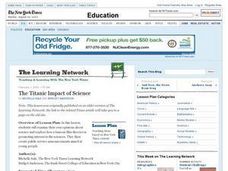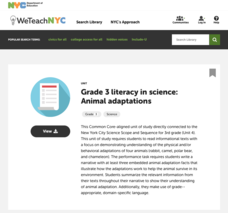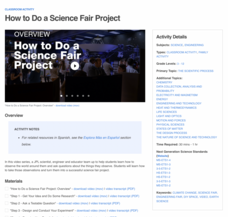Science Teacher Resources
Learning more about the world around us helps with skills in analysis, observation, evaluation, and innovation. Any science class is a perfect place for students to practice these skills—and Lesson Planet is the perfect place to find the resources that science teachers need!
No matter what field of science you’re teaching, proper planning is the difference between a successful project and a disastrous lesson. Use a planning guide for science projects that offers multiple ways for students to present their experiment results. Additionally, a fun penny assignment connects to any science class and makes a great class opener!
Bring social studies and science together with an app that focuses on scientists from the Renaissance, including influential thinkers who have been overlooked by the history books. Take a step into the more recent history of scientific thought with a video on Barbara McClintock and other genetic scientists, or another video on Darwin and his work with natural selection.
Take science out of the lab and into the kitchen with a video on molecular gastronomy. For science fiction fans, a video investigates the science of Star Wars (and another video checks out the science in HBO’s Game of Thrones).
Science is a realm of wonder and never-ending learning. Keep that learning going with our teacher-curated resources at Lesson Planet!

























